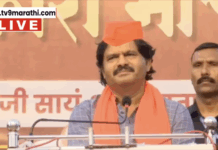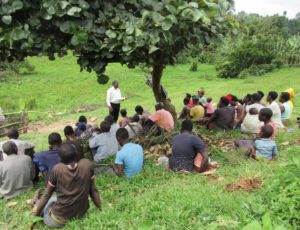
Orality Missiology: The Multiplication Factor
Special to ASSIST News Service
By JERRY WILES
North America Regional Director of International Orality Network
President Emeritus of Living Water International
Houston, TX (ANS) February 8, 2019 – The Orality Movement has emerged and grown over the past 40 years. Collectively we have come to recognize the plethora of the concepts, principles and practices of Orality. There are several different terms, expressions and definitions that sometime tend to confuse people. Many may think of Orality as being limited to storytelling or spoken methods. A common definition of orality is, “a reliance on oral communication.” However, there is much more depth and breadth to the movement than the definition of the word.
A Growing Community of Learning and Practice
Those engaged in the Orality Movement, as practitioners, trainers, researchers and scholars are continually gaining greater awareness of the various disciplines related to the Orality Domain. However, as the body of knowledge is growing around these issues, our primary focus is on completing the Great Commission – communicating the Gospel and making disciples.
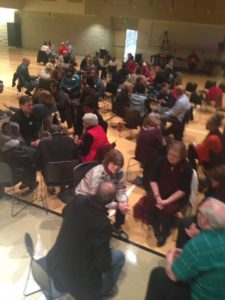
An important question is, “How do most people receive, understand, process and pass on information?” Simplicity and reproducibility are the important factors that make multiplication possible.
In our Orality journey with Living Water International and partner organizations over the past decade, and my own personal journey since the 1980s, we now have a much better understanding of the importance of Orality. We also recognize that there is so much more we can learn.
Practical Examples
In the context of this article, I want to focus on some practical examples of how Orality Methods and Strategies are being used to advance the Kingdom of God in different ways. We in Living Water International have experienced how Orality Training has had impact among remote people groups where they have no Bibles and limited technological resources. However, we have also experienced great receptivity when conducting Orality Training events on seminary and university campuses, with business leaders, at mission conferences and in churches around the United States.
A college professor from a major university participated in an Orality Training a few years ago. A few months later I saw him at an event and he told how he was using the methods with his students in a classroom setting, and how they received it with great joy and excitement. There is a growing interest in Orality among the academic community. See this article as an example: (https://www.lausanne.org/content/lga/2018-05/orality-in-the-academy-and-beyond).
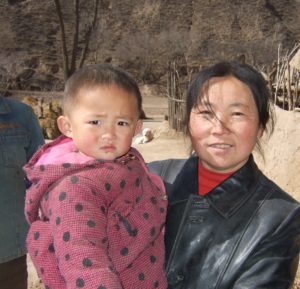
Orality Enhances Unity in the Body of Christ
Several years ago I conducted an Orality Training Workshop in a suburban Houston church where most of the participants were senior citizens and had been attending that church together for more than 25 to 30 years. Because the training is very engaging and participatory, by the middle of the afternoon the entire groups were in tears as they retold and discussed the stories and shared their experiences. They realized that even though they had attended church together, they really didn’t know each other. Their stories and discussions created the opportunity for them to share at a heart level that they had never done before.
The Power of Healthy Relationships and Community
We’ve observed other ways that Orality practices have helped improve relationships, resolve conflict and build community within churches, as well as in businesses and other organizations. There is so much we in the Western World and North America can learn from the more relational, communal, Oral Cultures.
The theme of our ION North America Regional Conference in Orlando last September was “Orality: Many Applications – One Mandate.” Of course, the One Mandate is the Great Commission – to communicate the Gospel to everyone and make disciples of all people groups. The big question is, What does is mean, and how do we do it?
There’s no shortage of plans, resources and strategies these days, but there may be some simple ways that we in the Body of Christ could be overlooking. Throughout Church History there have been those who have had more influence and impact, just accidentally (humanly speaking), than others have had on purpose. The most sophisticated strategies and methods, even with the use of modern technology, have not had the impact for the Kingdom, as some ordinary individuals have had with very limited resources and methods.
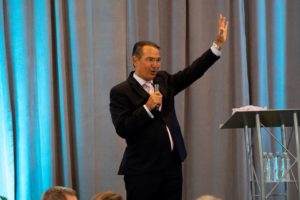
Growth and Multiplication
A simple, ordinary Spirit-filled follower of Jesus, with a pure heart and a passionate desire to please and obey the Lord, can make a significant contribution to advancing the Kingdom of God. We often see women and children in Africa, Asia and Latin America come alive with excitement and become storytelling evangelists after receiving Orality Training.
Think about the disciple making, church planting, church growth and multiplication that has taken place over the centuries. Much of it has been more spontaneous with multiplying impact, than by well thought out plans and strategies. Plans, methods and strategies are important, as well as understanding cultures, worldviews and communication theories. However, all these can just become activities with little fruit, unless they are energized by the Holy Spirit.
Orality in Business as Mission
One of the big challenges we have in the Orality Movement is to continually be aware of the creative and unlimited capacity of the Holy Spirit to touch hearts and change lives in a variety of ways. Some people have gotten the impression that Orality is just about storytelling or spoken methods. However, it’s really about using all means available, including text-based and technology-based resources. When we speak of communicating truth “by all means,” it’s good to think of the tools of the age, as well as the tools of the ages.
Consider all the tools of the age, all the ways and means of communication and instruction available to the church today that were not available even 100 years ago. However, when we also combine the tools of the ages, Orality methods and strategies (storytelling, song, dance, drama and many other art forms), we have a powerful combination to have a multiplying impact for advancing the Kingdom of God and completing the Great Commission.
For more information on Orality resources, training opportunities, and other events, visit – www.orality.net or www.water.cc/orality.





